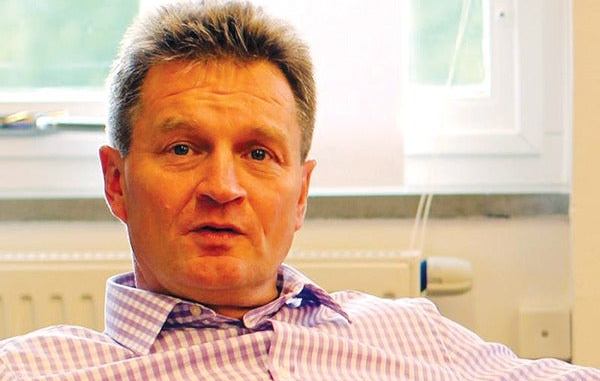EU Chief to Zimbabwe dismisses MDC as useless

EU Ambassador to Zimbabwe Timo Olkkonen
HEAD of the European Union (EU) delegation in Zimbabwe, Timo Olkkonen, has said Zimbabwe deserves a viable and people-driven opposition to effectively keep the government under check.
Speaking on HSTV’s FreeTalk on Thursday, Olkkonen said for democracy to prevail in Zimbabwe, a viable opposition must be able to stand up and challenge the Zanu PF government when it deviates from the norm.
His comments came amid reports that the bloc told MDC-T leader Douglas Mwonzora at their meeting a fortnight ago that it did not recognise his leadership because he did not participate in the 2018 presidential elections.
Mwonzora met the EU diplomats two weeks ago in a bid to facilitate dialogue between the bloc and President Emmerson Mnangagwa’s administration.
“Having a viable opposition that challenges and questions the government is very important,” Olkkonen said.
“So I do recognise those concerns that when you don’t have that kind of an opposition that would have a mandate from elections. It’s an important issue and that’s why I can understand why those statements are being made.”
The MDC Alliance emerged as the biggest opposition after the 2018 harmonised elections with 2,1 million votes for its presidential candidate Nelson Chamisa. The MDC-T came a distant third with its presidential candidate Thokozani Khupe garnering a paltry 45 000 votes.
However, on March 30 2020, the Supreme Court ruling effectively gave powers to the MDC-T, leading to a series of recalls that have seen the faction, now led by Mwonzora with the majority in Parliament and priding itself as the biggest opposition outfit.
The MDC Alliance has accused the MDC-T of conniving with Zanu PF to decimate Chamisa’s party ahead of the 2023 harmonised elections.
Mwonzora, on his part, has warmed up to President Emmerson Mnangagwa, saying he was dropping the “politics of rancour” in favour of a non-confrontational approach.
The United States, in its latest report that summarises the situation in Zimbabwe since February 2020, dismissed the MDC-T as a “minor opposition” that was aided by the State to decimate the MDC Alliance.
Olkkonen called on the government to ensure that after the MDC Alliance MPs and councillors’ recalls, voters must be allowed to elect their preferred representatives.
“I would not want to go into partisan politics and comment on that. People’s representatives are lacking, which is the case now when the people have been recalled but there is need for a remedy and there will be need for elections, for people to express their will and that is why we hope that the situation will be addressed,” he said.
Olkkonen also warned that the proposed Patriotic Bill meant to criminalise, among other things, private citizens’ engagement with foreign countries, would further strain relations between Harare and the EU.
Diplomatic sources have warned that the re-engagement plan could go up in smoke if Mnangagwa persists with his push for the Patriotic Bill.
“The passing of the Patriotic Bill would change the relations between the EU, international community and Zimbabwe, that will hurt relations deeply. This is the general feeling in the discussions among diplomats,” a source said yesterday.
Olkkonen, however, refused to comment on the issue raised by other diplomats, but said the EU remains concerned about the Bill.
“We are closely following the political environment as we are moving to the next elections, and of course trying to play our part in the social and economic sphere and it’s important for us because the EU is planning its future co-operation with Zimbabwe,” he said.
The Patriotic Bill seeks to foster patriotism and criminalise talking bad about Zimbabwe.
–Zimbabwe Mail




